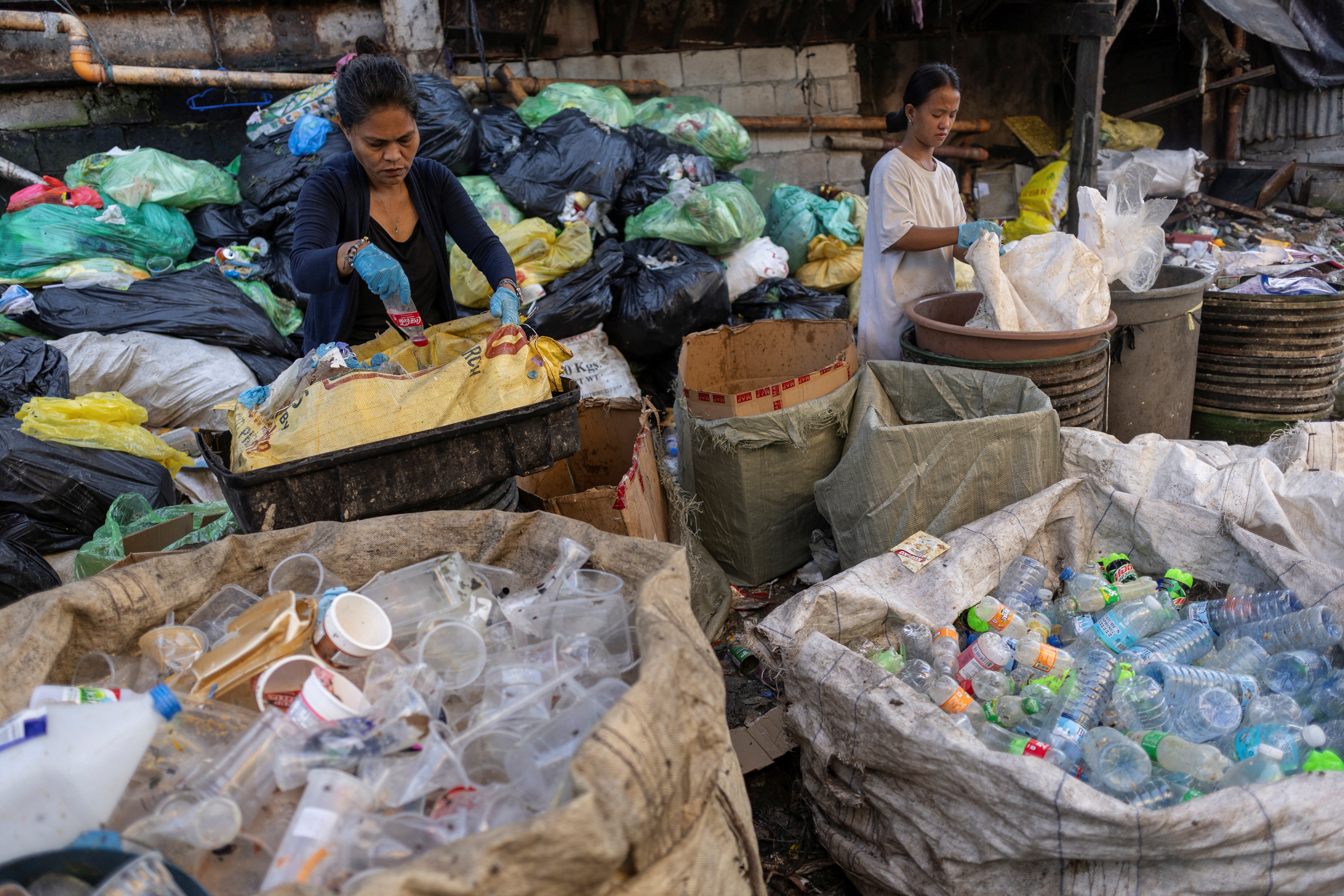127 countries now regulate plastic bags. Why aren't we seeing less pollution?

A least 127 out of 192 countries now have some sort of legislation to regulate plastic bags. Image: REUTERS/Jose Luis Gonzalez
There's a global battle against single-use plastics, particularly when it comes to the once-ubiquitous plastic bag. A new report from UN Environment and WRI found that at least 127 countries (of 192 reviewed) have adopted some form of legislation to regulate plastic bags as of July 2018. These policies range from outright bans in the Marshall Islands to progressive phase-outs in places like Moldova and Uzbekistan to laws in Romania and Vietnam that incentivize the use of reusable bags.
Yet despite increasing regulations, plastic pollution remains a massive problem. Every year, about 8 million metric tons of it ends up in the ocean, where it can harm fish and wildlife, and, once it enters the food chain, threaten human health. Plastic can enter the food chain in many ways; for example, plastic is broken down and ends up in the ocean and marine animals we eat. Bits of plastic have even been found in the waste of people in Europe, Russia and Japan, according to research from a small pilot study. Contamination of water bodies with plastic and its byproducts is a major environmental hazard, according to the UN.
Companies produce an estimated 5 trillion plastic bags a year. Each one can take more than 1,000 years to decompose, and few are recycled.
Part of the reason plastic pollution continues is that the regulation of plastic bags is extremely uneven worldwide, and many loopholes exist. Here are a few reasons why plastic bag regulations are not yet effective in slowing down ocean pollution:
1) Most countries fail to regulate plastic through its lifecycle.
Very few countries regulate the entire lifecycle of plastic bags—from manufacturing and production, use and distribution, to trade and disposal. Only 55 countries comprehensively restrict the retail distribution of plastic bags, in tandem with restrictions on manufacturing, production and imports. The rest include loopholes that could fail to curb overall plastic pollution. For example, China bans plastic bag imports and mandates that retailers charge consumers for plastic shopping bags, but does not explicitly restrict their production or exportation. Ecuador, El Salvador and Guyana only regulate the disposal of plastic bags, but not their importation, production and retail use.
2) Countries favor partial bans over full bans.
Eighty-nine countries we reviewed opted for partial bans or restrictions on plastic bans instead of full bans. Partial bans may include requirements on bags' thickness or composition. A range of thicknesses and biodegradability requirements are regulated. For example, France, India, Italy, Madagascar and several other countries don't have an outright ban on all plastic bags, but they do ban or tax plastic bags that are fewer than 50 microns in thickness.
3) Virtually no countries restrict plastic bag manufacturing/production.
Manufacture volume limits, arguably one of the most effective means of limiting plastics from entering the market, are the least utilized regulatory mechanism. Only one country in the world, Cape Verde, includes an explicit production limit. The country imposed a percentage reduction on plastic bag production, starting at 60 percent in 2015 and growing to 100 percent in 2016, when its full ban on plastic bags came into force. Since then, only biodegradable and compostable plastic bags are allowed in the country.
4) Exemptions are numerous.
Twenty-five of the 91 countries that have plastic bag bans include exemptions, and many have multiple exemptions. Cambodia, for instance, exempts from its ban the importation of small volumes (fewer than 100 kilograms) of plastic bags for non-commercial purposes. Fourteen African countries have explicit exemptions in their plastic bag bans. Exemptions may relate to certain activities or products. The most common exemptions include handling and transport of perishable and fresh food items, carrying small retail items, use for scientific or medical research, and garbage or waste storage and disposal. Other exemptions can include plastic bags for export, national security (airport and duty-free bags) or agricultural uses.
5) Incentives are not offered for alternatives to single use plastic bags.
Governments oftentimes fail to provide subsidies for reusable bags. They also fail to require recycled content to be used in plastic or biodegradable bags. Only 16 countries we reviewed had rules regarding the use of reusable bags or plastic alternatives, such as bags made from plant-based materials.
An opportunity for change
There are some countries pushing beyond existing regulations to pursue new and exciting approaches. They're attempting to shift the responsibility for plastic pollution from consumers and the government to the companies that produce plastic. Australia and India, for instance, enacted laws requiring Extended Producer Responsibility (EPR), a policy approach where producers must be responsible for the clean-up or recycling of their products. EPR encompasses management of the potential impacts of a product in all stages of production, distribution, use, collection, re-use, recycling, reprocessing and disposal.
As plastic production has doubled in the last 20 years and is expected to continue to increase, the world urgently needs to reduce its use of single-use plastic bags. The UN Environment Assembly meeting this week will focus on sustainable consumption and production. Ideally, a decision will emerge that can combat our plastic addiction and increase the uptake of reusable alternatives. We need to improve the design and implementation of laws around the world.
Don't miss any update on this topic
Create a free account and access your personalized content collection with our latest publications and analyses.
License and Republishing
World Economic Forum articles may be republished in accordance with the Creative Commons Attribution-NonCommercial-NoDerivatives 4.0 International Public License, and in accordance with our Terms of Use.
The views expressed in this article are those of the author alone and not the World Economic Forum.
Stay up to date:
Future of the Environment
Related topics:
Forum Stories newsletter
Bringing you weekly curated insights and analysis on the global issues that matter.
More on Circular EconomySee all
Felipe Basso
November 13, 2025








